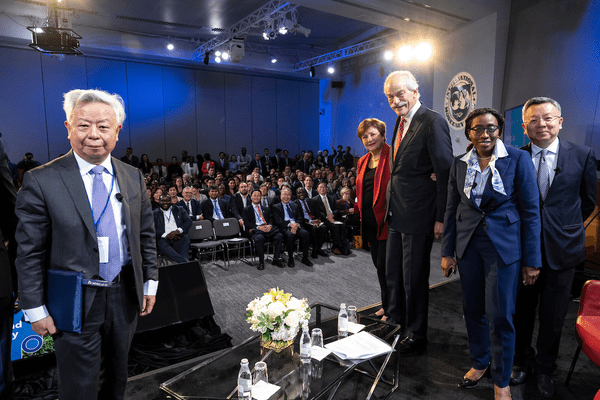Recently, Bretton Woods Committee’s (BWC) Multilateral Reform Working Group (MRWG) released its first report “Strengthening the Bretton Woods Institutions to Meet 21st-Century Global Challenges”.
Key highlights of the report:
- Multilateralism, led by International Financial Institutions (IFIs), has fostered high growth and globalization, benefiting the global population.
- The world has experienced significant improvements in living standards and poverty reduction over the past 80 years.
- Two current challenges pose a threat to the 80-year record of rising global living standards and poverty reduction.
- Firstly, crises in the global commons, encompassing cross-border challenges like climate change, pandemics, and cyber risks, are increasingly impacting the world negatively.
- Without effective collective action, these challenges could become more urgent over time.
- Secondly, despite recognition, progress in addressing these challenges has been deemed too little and too slow.
Defining the Problem
- Climate change is recognized as one of the most critical global challenges.
- Innovations have made it technically feasible to reduce carbon emissions; however, the challenge now lies in implementing these solutions quickly, equitably, and on a large scale.
- Focus must shift towards setting priorities for mitigation and adaptation and mobilizing the necessary financial resources.
Taking a Gap-Based Approach
- A gap-based framework is proposed to address challenges in both the public and private sectors.
- Three substantive gaps exist in both public and private sectors: governance, implementation, and accountability.
- Addressing public sector gaps enables progress in the private sector.
Public Sector Gaps:
- Governance: Lack of overall coordination for global climate policy and financing.
- Implementation: No leading public institutions for transparent and best practice-based implementation.
- Accountability: Absence of a permanent mechanism for reviewing progress on financing and implementation.
Private Sector Gaps:
- Governance: Inadequate mechanisms for establishing transparent decarbonization goals.
- Implementation: Lack of sufficient regulatory and financial instruments for climate change investment.
- Accountability: No mechanisms to verify corporate commitments and strategies, increasing the risk of greenwashing.
Strengthening the Roles of the Bank and Fund
- Bretton Woods Institutions (World Bank & IMF) are seen as pivotal in leading the global response to commons challenges due to their global membership and governance structures.
- They are urged to play a more substantial role in coordinating global efforts and mobilizing private sector participation.
- Recommendations include forming ministerial-level councils with decision-making authority and increasing their financial resources and governance capabilities.
Recommendations for Filling the Gaps
- Governance: Establish focused ministerial-level councils in IMF and World Bank to handle global commons issues with decision-making authority.
- Finance: Develop financial instruments and institutional frameworks to fund initiatives tackling climate challenges, including the expansion of climate-linked financial instruments.
- Implementation: Mobilize international financial resources to support expansion of clean energy, phasing out coal, promoting adaptation to global warming, and protect forest.
- Accountability: Establish a permanent mechanism for systematic review of global financing and implementation plans.
About BWC & MRWG:
BWC:
- The BWC, established in 1983, is a leading non-profit organization committed to fostering effective global economic and financial cooperation.
MRWG:
- The MRWG is a special project of the Bretton Woods Committee that is addressing how the multilateral system can be strengthened to address 21st century global challenges.
- The MRWG will consist of experts in finance, economics, public policy, and international affairs.
- It will conduct research and make policy recommendations to improve growth outcomes, promote sustainable and inclusive development, enhance development finance effectiveness, and guide IFIs in addressing new challenges.
About Bretton Woods Institutions:
- Established in 1944 by 43 countries with the goal of rebuilding the post-war economy and fostering international economic cooperation, the Bretton Woods Institutions consist of the World Bank and the International Monetary Fund (IMF).
- IMF: An international organization that provides technical assistance, training, and loans to member states to maintain global financial stability.
- World Bank: An international organization that provides financial and technical assistance to developing countries to reduce global poverty.
Other key facts:
Global commons:
- Global commons are physical areas that exist outside the jurisdiction of any one nation, but upon which all nations have access.
- The four global commons identified by international law are: The High Seas, The Atmosphere, Antarctica, and Outer Space.
Global commons also include the earth’s shared natural resources, such as the ocean floor, and cyberspace may also meet the definition of a global commons.
| UPSC IAS Preparation Resources | |
| Current Affairs Analysis | Topperspedia |
| GS Shots | Simply Explained |
| Daily Flash Cards | Daily Quiz |



